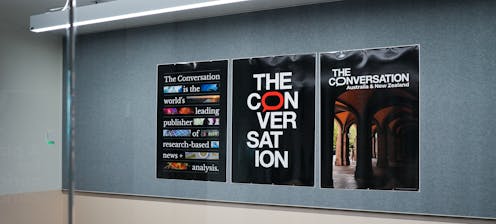We value your feedback – here's how to let us know what you think
- Written by Misha Ketchell, Editor, The Conversation

Sometimes the things that matter most are so obvious we miss them altogether. When I started out as a newspaper reporter, a colleague told me it was important to really listen to the people who I interviewed. I couldn’t hide my irritation. Was I so dumb I needed a reminder to listen to answers to the questions I had just asked?
Twenty years on, this is the most important professional advice I ever received. We all walk around confident that we’re paying attention, that our ears are open and we are receptive to new ideas. We think we are listening, but often we aren’t. We are distracted, our minds are made up, we are waiting for the other person to stop talking so we can make our next point.
Real listening is something you have to work at, but if you can get it right it is invaluable. I’ve been thinking about this because a few weeks ago we sent out a survey asking what you think of The Conversation and what we can do to improve. Almost 4,000 of you responded, which was kind and valuable.
The survey results give us some important statistical insights. It’s very useful to know that 82% of readers trust The Conversation to present information accurately and without a political slant. (It should be 100%!) It was also encouraging to hear that over 85% of authors experience positive impacts from writing for us. This information can underpin how we report our work to our university partners and philanthropic supporters.
But the bit I value most in the spreadsheet is comments from readers. And here’s where listening comes in. The most common request in our survey responses was to allow more comments on articles. Many readers found the comments section enjoyable and expressed sadness that we don’t open up as many articles to comments as we used to.
There is no easy fix for this. We rarely open comments due to the legal risk, the staff time involved in comment moderation, and the negative impact of misinformation. To run an active comment section takes more resources than we have, so instead we post on social media where comments are open and encouraged.
But in the survey feedback I detected another important message, which is that you want to have a better two-way conversation with us. And there are lots of ways we can make this happen, via our behind-the-scenes editors blog and our social media channels, as well as hosting live events and Q&A sessions.
The comments section on this article is open, so please post your thoughts below. And please also email us[1] your ideas and suggestions. We can’t respond to every message, but every single one is read and considered with an open mind.
Finally, I’ve got a small favour to ask. The Conversation is a not-for-profit that exists to make expert knowledge widely available so people can make better decisions. We’ve produced a short 15-second online video advertisement[2] to introduce ourselves to new readers, especially younger readers in the 16 to 30 age bracket. Please check it out and share it if you can, and thanks again for taking the time to let us know what you think.
References
- ^ email us (theconversation.com)
- ^ online video advertisement (www.youtube.com)
Read more https://theconversation.com/we-value-your-feedback-heres-how-to-let-us-know-what-you-think-214951

















